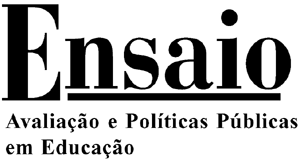Abstract
With the advent of the federal education program known as No Child Left Behind, a disproportionate increase in hours devoted to testing, narrowing of curricula and vertical assessments focusing on accountability of teachers and principals began to shape the agenda for educational reform in the United States. This article, developed through bibliographical and documentary research, contests the assumptions underlying these policies, which are strongly structured around standardized large-scale testing, known to be the “tool par excellence” of the government program in question. Besides perverse effects forced upon the students, this paper exposes the intrinsic limitations of these instruments in order to measure the assimilation of knowledge by the students, as well as the proliferation of all kinds of expedients of questionable ethical validity with the view to simulate the reach of academic performance targets set by the mentioned program.
Standardized tests; Educational policy; United States
